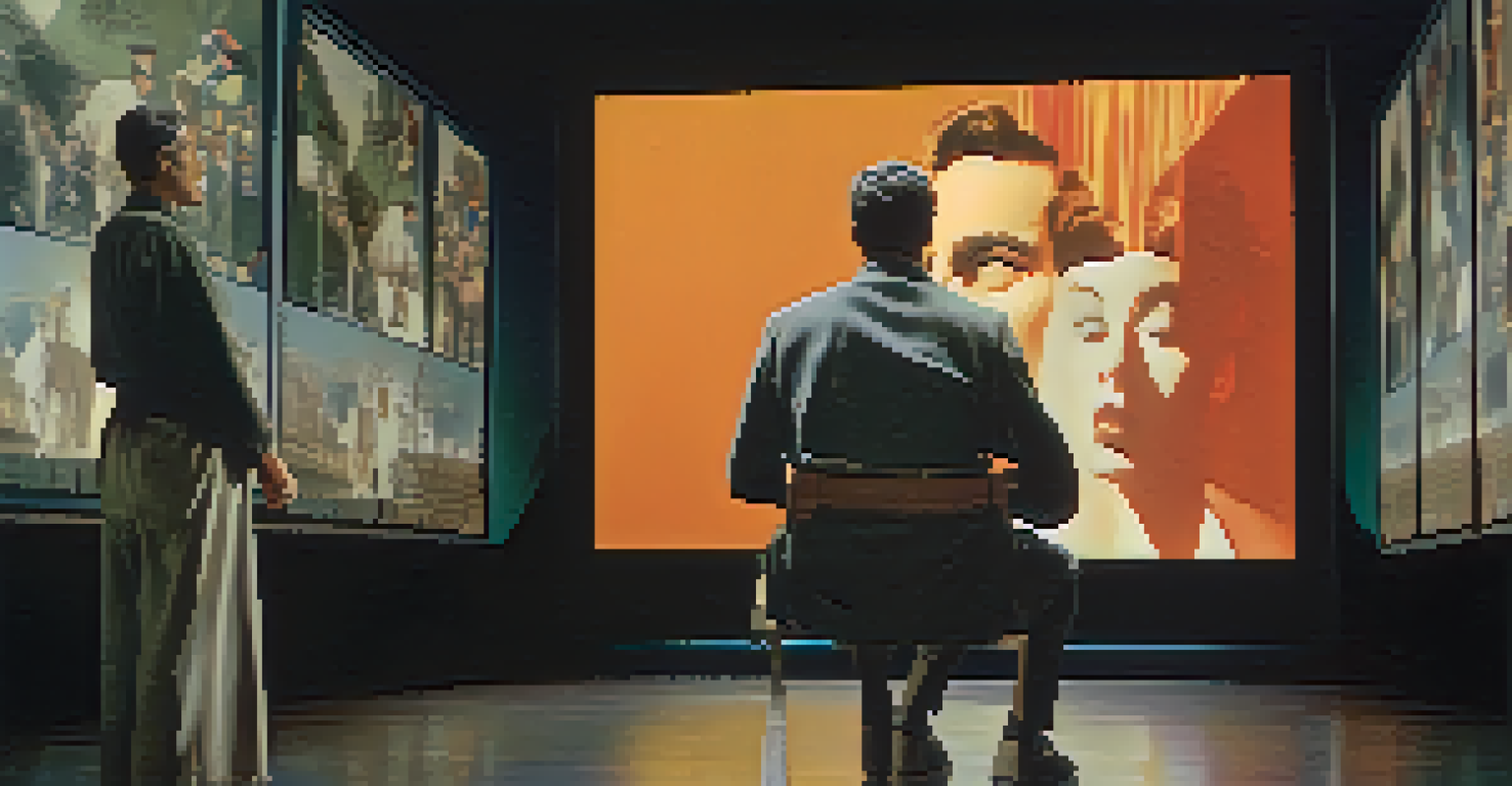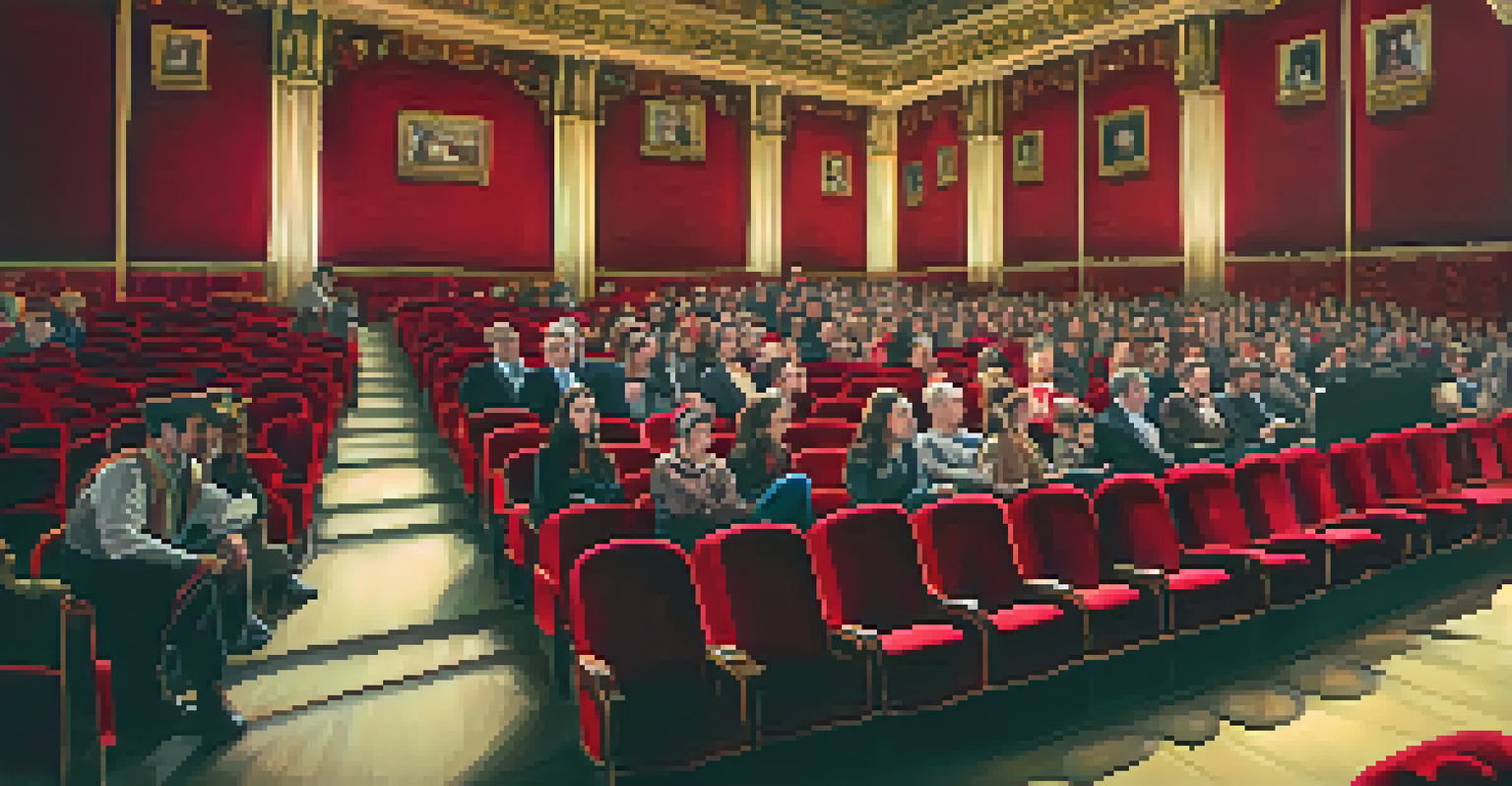Fact-Checking Hollywood: The Truth Behind the Silver Screen

Hollywood's Creative License: Fact or Fiction?
In the world of cinema, creative storytelling often takes precedence over strict adherence to facts. Filmmakers frequently blend reality with fiction to enhance drama and engage audiences. This artistic license can lead to a distorted representation of actual events, leaving viewers questioning what is true.
Movies are a form of storytelling that can both reflect and shape our understanding of history.
Take, for example, historical dramas like '300,' which depicts the Battle of Thermopylae. While it captures the spirit of the story, many historical inaccuracies abound. This balance between creativity and authenticity raises important questions about the responsibility of filmmakers to their audiences.
Ultimately, while Hollywood can captivate with its storytelling, audiences should approach these films with a discerning eye. Understanding that some elements are exaggerated or altered can help viewers appreciate the narrative while recognizing the line between fact and fiction.
The Role of Historical Accuracy in Biopics
Biopics, or biographical films, aim to depict the lives of real people while telling their compelling stories. However, the challenge lies in presenting an accurate portrayal without losing the audience's interest. This often leads to the alteration of timelines, events, and character traits for dramatic effect.

Consider 'A Beautiful Mind,' which portrays the life of mathematician John Nash. While the film highlights his struggles with schizophrenia, it simplifies and dramatizes many aspects of his life. Such choices can lead to both praise and criticism, as audiences grapple with the balance between entertainment and accuracy.
Creative License vs. Historical Facts
Filmmakers often blend reality with fiction, leading to distorted representations that challenge audiences' perceptions of truth.
In the end, the success of a biopic hinges on its ability to resonate with viewers while providing a glimpse into the subject's reality. This means that while some liberties are taken, the core message about the individual's journey should remain intact.
Documentaries vs. Dramatizations: Understanding the Difference
Documentaries and dramatizations both tell stories, but they do so in fundamentally different ways. Documentaries aim to inform and educate, relying heavily on factual evidence, interviews, and real footage. In contrast, dramatizations often infuse narrative techniques to enhance emotional engagement, potentially sacrificing factual accuracy.
The truth is not always what we see; it may be what we choose to believe.
For instance, the acclaimed documentary '13th' delves deep into the history of racial inequality in the U.S. It presents well-researched facts and historical context, making it a powerful educational tool. In contrast, films like 'The Imitation Game' dramatize events from Alan Turing's life for entertainment, which can sometimes blur the lines of truth.
Understanding these distinctions is crucial for audiences. While documentaries strive for authenticity, dramatizations may prioritize storytelling, reminding viewers to seek out factual resources alongside their cinematic experiences.
The Impact of Artistic Interpretation on Reality
Artistic interpretation plays a significant role in how stories are told in Hollywood. Directors, screenwriters, and actors bring their own perspectives to a narrative, which can lead to variations in how events are portrayed. This creative process may illuminate certain truths but can also obscure others.
For example, Quentin Tarantino's 'Inglourious Basterds' takes a fantastical approach to World War II history. By reimagining events, the film invites audiences to reflect on the nature of war and revenge, even if the actual history is significantly altered. This artistic flair can provoke thought but may mislead those unfamiliar with the real events.
Biopics Balance Accuracy and Drama
Biopics must navigate the fine line between entertaining storytelling and accurate portrayals of real people's lives.
As viewers, it's essential to recognize the influence of artistic choices on our understanding of history. While some films challenge our perceptions, others may inadvertently create misconceptions, underscoring the importance of fact-checking.
How Hollywood Influences Public Perception of History
Hollywood holds immense power in shaping public perception of historical events. Through its storytelling, the film industry can either reinforce stereotypes or challenge them, impacting how audiences view different cultures and histories. This influence can be profound, as films often serve as the first introduction to certain topics for many viewers.
For example, films like 'Schindler's List' and 'Selma' have played pivotal roles in educating audiences about significant historical events. They not only provide entertainment but also spark conversations about social justice and human rights. However, when films misrepresent facts, they can perpetuate myths and inaccuracies.
This responsibility comes with a call to action for both filmmakers and audiences. While filmmakers should strive for accuracy in their portrayals, audiences must also engage critically with what they watch, seeking out additional information to gain a fuller understanding of history.
The Rise of Fact-Checking in the Film Industry
As awareness of misinformation grows, the film industry is increasingly recognizing the importance of fact-checking. Filmmakers are now more inclined to consult historians, experts, and primary sources to ensure their narratives are grounded in reality. This trend reflects a broader societal push towards accountability and transparency.
For instance, the production of the recent film 'The Trial of the Chicago 7' involved extensive research to accurately portray the events and figures involved. Such commitment to factual integrity not only enhances the film's credibility but also enriches the audience's understanding of the historical context.
Critical Viewing Enhances Understanding
Developing critical viewing skills enables audiences to appreciate films while recognizing potential inaccuracies in historical narratives.
As audiences demand more authentic representations, the film industry is adapting to meet these expectations. This evolution underscores the power of film as a medium for education and the potential for storytelling to inspire informed discussions.
The Importance of Critical Viewing Skills for Audiences
With the influx of films that blend fact and fiction, developing critical viewing skills is essential for audiences. Recognizing the difference between creative storytelling and factual representation can help viewers navigate Hollywood's offerings more effectively. This skill set empowers individuals to appreciate films while remaining aware of their potential inaccuracies.
For example, after watching a historical film, one might research the actual events portrayed to gain a deeper understanding. This practice not only enhances the viewing experience but also fosters a culture of inquiry and discussion about history and representation.

Ultimately, critical viewing helps demystify the cinematic experience, allowing audiences to engage more thoughtfully with the stories presented. By cultivating this skill, viewers can become more discerning consumers of media, contributing to a more informed society.
Conclusion: Navigating the Intersection of Fact and Film
Navigating the intersection of fact and film requires a balanced approach. While Hollywood often prioritizes storytelling, it's crucial for audiences to remain aware of the liberties taken with historical narratives. By understanding this dynamic, viewers can enjoy films while maintaining a critical perspective.
As we continue to engage with cinema, it's essential to appreciate the artistry involved in filmmaking, alongside a commitment to seeking out the truth. This dual focus allows us to enjoy the magic of movies while recognizing the importance of factual accuracy.
In a world where information is constantly evolving, embracing both the artistic and factual elements of film can enrich our understanding of history and culture. By fostering a culture of fact-checking and critical thinking, we contribute to a more informed and engaged society.